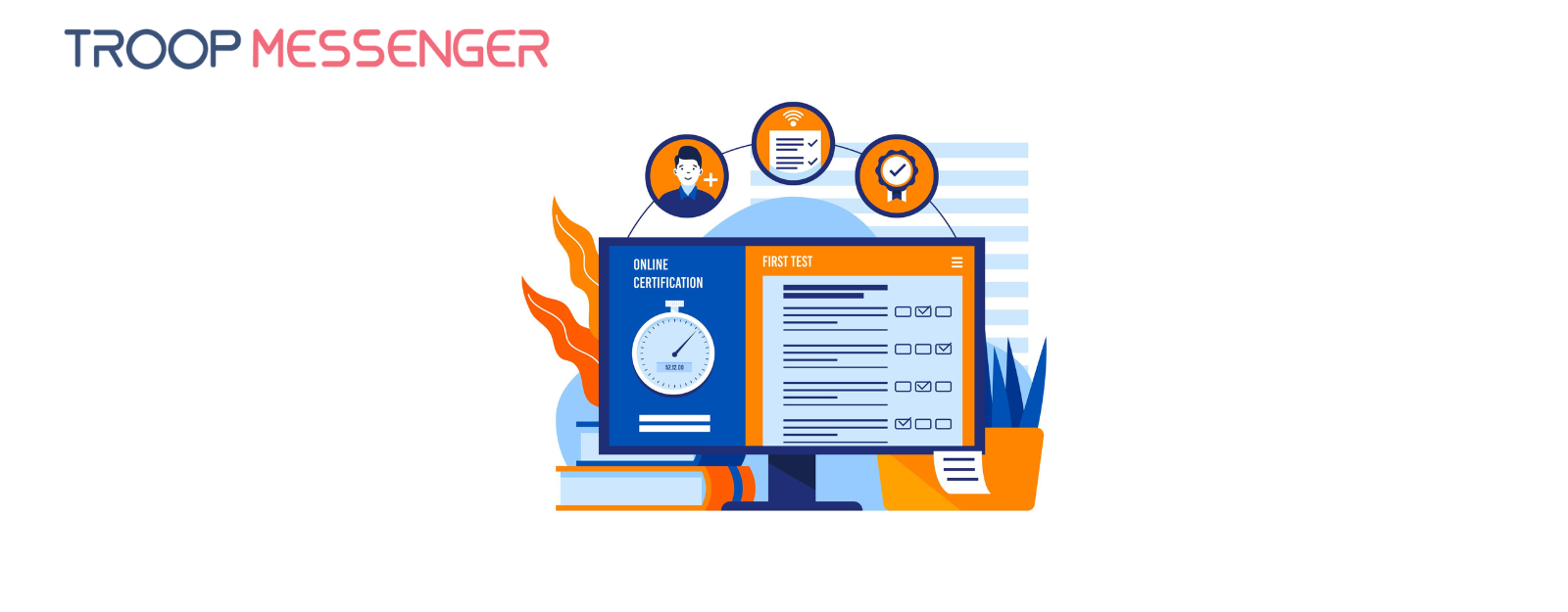Connect with us

What Are the Advantages of Integrating SMS with Team Messaging Apps
Effective communication is, without exaggeration, a key success factor in a business environment where the speed and accuracy of information exchange have become crucial. However, traditional means of communication have their limitations. These include the time it takes to deliver messages and the risk of losing important emails in the spam stream. But at the same time, SMS, as a universal channel, does not require access to the Internet. It is available on any mobile device. As a result, it can reach even those employees who have limited accessibility. In contrast to SMS, specialized instant messaging applications are extremely interactive and user-friendly, but they depend on a stable Internet connection. Therefore, integrating SMS with a business messaging app allows you to combine the advantages of both approaches, creating a reliable communication system, reducing the likelihood of missing important messages and speeding up decision-making. Such a symbiosis becomes especially important in remote and hybrid work formats. When employees may be in different time zones, or work with an unstable Internet connection, or use different devices to exchange information.
Key Benefits of Integrating SMS with Messaging Applications
Increased efficiency of team communication
As mentioned above, one of the main benefits of integrating SMS with applications is that it creates a reliable channel for information exchange. Unlike internet-dependent platforms, SMS does not require a network connection. This makes it a universal means of contact for any scenario. And in order to ensure uninterrupted communication between all employees, regardless of where they are and whether they have stable internet access, it's important to integrate internal SMS with your team messaging application. This approach will not only increase productivity but also eliminate communication gaps. Using text messages to communicate with employees makes the delivery of critical information seamless, especially in emergency situations, and so provides a reliable channel for meeting reminders, urgent updates, or emergency alerts. By using this method, companies can unify their communication systems and increase overall team efficiency. An internal employee text messaging system becomes a great way to organize quick communication between different departments.
Automated notifications Reminders
Modern integrated systems allow you to automate many routine tasks. In particular, the following types of tasks can be automated:
- Updating task statuses,
- Sending reminders about meetings,
- Schedule confirmation,
- Sending surveys to collect feedback,
- Sending notifications about deadlines and progress on tasks,
- Send notifications about maintenance or system updates,
- Reminders to pay bills or complete paperwork,
- Sending congratulatory messages ( i.e., on birthdays or other special occasions),
- Updates on inventory or order status.
These emails help reduce the risk of human error, save time, and make communication much more efficient by creating a seamless flow of information between all team members.
Workflow optimization
The efficiency of a modern business largely depends on how quickly information is transferred between employees. Integrating SMS with a business messaging app greatly simplifies this process by creating a flexible and reliable data exchange system.
Unity of information space
Thanks to the integration, the company can store all communications in one place, which allows it:
- Ensure coordinated work between different departments,
- Find the information you need faster,
- Have centralized message management.
Improved planning
Employees can receive regular updates on task status or schedule changes without having to manually check calendars or emails. Managers can set up automatic notifications when project milestones are completed or key goals are met. If there is an unforeseen change in the schedule, the responsible parties receive instant notifications.
Fast solving of urgent issues
SMS plays an essential role in situations where you need to solve problems instantly. In the event of an urgent request for additional information or a sudden change in a deadline, text messages allow you to quickly contact the right person. This way, no team member is left behind.
Ensuring Reliable Coverage
One of the biggest advantages of using SMS in conjunction with messaging applications is the versatility of this communication channel. Here is a closer look at it.
Platform independence
Messengers require software installation or account creation. In contrast, SMS is available to anyone with a cell phone. This allows you to reach absolutely all employees, regardless of their capabilities. This means reaching even those employees who for some reason cannot use other means of communication.
SMS is supported in all countries, regardless of local infrastructure. Also, if the main messaging system is unavailable due to technical failures or server issues, SMS serves as a backup channel for transmitting critical information. This helps to avoid disruptions in the team's work.
Non-standard scenarios for using SMS in business
- Urgent notifications
In case of emergencies (fire, accident, or technical failure).
- Notifications for employees on a business trip
Instant communication to share key details and reminders while traveling.
- Meeting reminders
Quickly inform about schedule changes or important events.
- Systems for rapid notification
Using SMS to organize temporary work teams in case of force majeure or to communicate in case of transportation delays.
- Task confirmation
Regular notifications about work progress, completion of certain project milestones, or deadlines.
Synergy Between SMS and Messaging Apps
The integration of SMS with instant messaging apps creates a unique ecosystem that combines the benefits of both technologies. Consider how this works.
Internal communication improvements
Hybrid or remote teams often face problems with information consistency due to time zone differences or the use of multiple platforms. Integrating SMS and messaging applications removes these barriers.
Benefits of an integrated approach
Centralized information space
All-important updates and notifications will be stored in one place, avoiding duplication or loss of data.
Flexibility of communication channels
Employees can receive notifications when the app is unavailable. This ensures uninterrupted communication.
Innovative use cases
Scalable policy updates
By combining SMS and business messengers, you can effectively inform employees about new initiatives and changes in internal procedures.
Onboarding new employees
The integrated system can send SMS reminders about trainings and information about responsible persons and access to materials through the application.
Crisis communications
In times of force majeure and urgent schedule changes, SMS works as a quick way to notify. At the same time, the business application provides additional details.
Increased employee engagement
When employees receive accurate and timely information, they feel part of the company, even when working remotely.
Approaches to increasing employee engagement
By sending birthday greetings and messages about project achievements, you create a positive atmosphere in the team.
Employees can quickly respond to SMS surveys and messages. This creates two-way communication even outside the office.
By sending regular SMS with important updates and reminders about events, the company demonstrates its attention to detail and care for the team. All this creates and maintains a high level of corporate culture.
Advantages for Different Industries
Logistics. Transportation
Integrated systems allow you to inform customers and employees about the status of cargo or parcels via SMS, duplicating this information in the application. In the event of a transportation delay or force majeure, SMS will work as urgent notifications. Operators can immediately notify drivers of changes in routes or weather conditions.
Healthcare
Quickly inform doctors about emergency calls or changes in the surgery schedule. Doctors and medical staff receive SMS about urgent calls or emergencies.
Messages remind staff about changes in the schedule of duties or operations.
Education
Integrated systems create communication between teachers, students, and administration. This is especially useful during quarantines or other force majeure events.
You can also send invitations to events, information about scholarships, or other important announcements via SMS.
Financial sector
For banks and other financial institutions, SMS integration creates speed and security of communications. You can quickly send transaction information, payment reminders, and account balance updates.
Sending confirmation codes via SMS to authorize transactions will create security.
Informing people about new products or personalized offers will ensure close communication with customers.
Retail trade. e- Commerce
SMS quickly reaches customers, informing them about current offers, promotions, or discounts.
Managers can promptly inform employees about work schedules or changes in the schedule, thus coordinating the work of staff in time.
Notifications about order confirmation, payment status, or delivery provide customers with transparency of the process.
Summary
Integration of SMS with messaging apps is an effective and powerful tool for businesses that want to maximize their efficiency. In combination with the capabilities of modern messengers, SMS adds efficiency and the necessary versatility, as well as undeniable reliability, which is especially crucial in a fast-paced work environment. By using a business messaging app together with SMS, companies create an uninterrupted flow of information, regardless of the Internet connection or technical limitations. This not only optimizes workflows, but also increases employee engagement and contributes to productivity and overall team efficiency.








